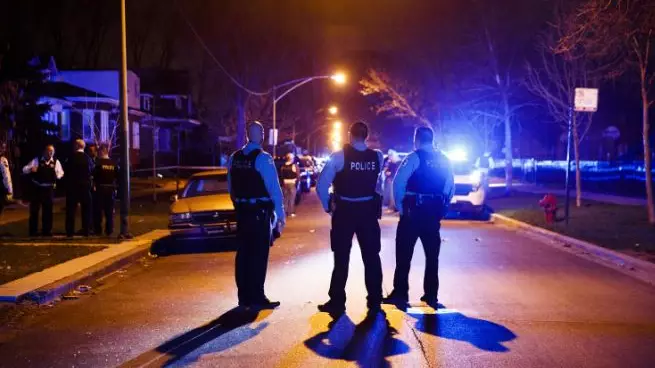
If for some reason you happen to find yourself being quizzed in a US police station, you might think that the best way to get yourself out of trouble is by answering the officers' questions as best you can and complying with everything they say. But you could be wrong.
An American law professor who has had a book published on the matter says you should be very careful when talking to the police. That means not answering their questions, not pleading the fifth amendment and not even remaining silent.
But why? And if you can't do any of the above, then what exactly are you supposed to do.
James Duane stresses that the best course of action if you want to avoid being prosecuted for a crime you didn't commit is simply never to talk to the cops. At all. Period.
Of course, if you're approached by a police officer you're legally obliged to tell them your name and what you're up to at that exact moment, but beyond that Duane recommends sticking to the words: "I want a lawyer".
The subject gained attention after the Netflix docudrama Making A Murderer brought it back into the spotlight and Duane explains his thoughts in detail in his book, You Have The Right To Remain Innocent.
He claims that it's dangerous to give the police any information at all, even if you haven't committed a crime.

Duane says that it's possible you could make mistakes when explaining how an event unfolded, which the police could then interpret as lies. It's also possible that the police could trick you into saying the wrong things, or an officer could even misremember what you said when recounting it later on.
Speaking to Vice in 2016, Duane explained how this all came about.
He said: "Up until about five years ago, lawyers would give out business cards to their client and say, 'Read this to the police,' and it'd say, 'At the advice of my attorney I decline to answer on the grounds that it may incriminate me, I'm invoking the Fifth Amendment.'
Advert
"And there wasn't a lot of soul-searching and agonizing that went into all of this, because as long as the jury never finds out that you took the Fifth, it's a perfectly sensible solution."
However, in 2013, a highly-publicised US court case changed everything.
"In the Salinas case, a young man was interrogated by the police, and when they asked him a bunch of questions that didn't seem to be very threatening, he took the bait and answered them all," Duane explained.
Advert
"Then all of a sudden, they [asked a question that made it] obvious they wanted information that might expose him to criminal prosecution, and he just got silent.
"He didn't say a word. And there's no doubt that he was exercising his Fifth Amendment privilege, but he didn't [formally] assert his Fifth Amendment privilege. So the five Republican [appointees] on the Supreme Court said, 'Because you didn't tell the police that you were using your Fifth Amendment privilege, your exercise of the privilege, or your decision to remain silent can be used against you as evidence of guilt'.
"The game has changed now that your choice to use the Fifth Amendment privilege can be used against you at trial depending exactly how and where you do it."
So, there you have it. If you do wind up in custody on your next jaunt stateside then just remember not to give out any information without a lawyer present. Unless you want to extend your holiday in some pretty unpleasant accommodation.
Featured Image Credit: PA